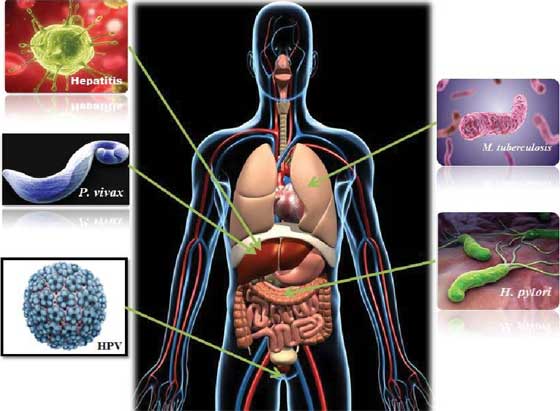30 awe-inspiring facts about your body
“At the atomic level, we are in a sense eternal” – Bill Bryson.
When is the last time you felt awe? That time-stopping, heart-tugging, WOW-inducing sense of wonder that has been described by psychologist Dacher Keltner as the feeling of “being in the presence of something vast that transcends your understanding of the world.” Often, we think of awe as something that requires a divorce from the mundane. Something we might stumble upon while climbing towering summits, meditating under starry heavens, standing inside grandiose galleries and cathedrals. How, then, can we find awe right here, confined to familiar walls and continuous testaments of a world that seems all but wonderous?

Despite its associations with the extraordinary, studies show that people can feel awe during ordinary moments of everyday life – while listening to the stillness of falling snow, while roaring with laughter with a loved one, while feeling the heartbreak open from the kindness of strangers. These moments are as unremarkable as they are priceless. They not only fill our days with quiet magic but according to science, they also do us good. The beneficial effects of awe on our physical and emotional well-being are well documented. Experiencing awe can make us happier, healthier, more creative, more generous, and more interconnected.
As we go about our days, preoccupied with the business of living, we may be overlooking one of the biggest sources of awe in the universe: our bodies. In his remarkable book The Body: A Guide For Occupants (“a directory of wonders,” as The Guardian puts it), Bill Bryson explores the orchestra of precision and processes that play out within our cells and organs to keep us going dusk after dawn. Come rain or shine (outside or inside), it won’t hurt to pause and acknowledge the marvel that is you.
Here are 30 awe-inspiring facts from The Body: A Guide For Occupants:
- Number of atoms it takes to make you: 7,000,000,000,000,000,000,000,000,000. If you wish to boast about it to a friend out-loud, that is seven billion billion billion, or seven octillion.
- Number of elements it takes to make a human being: 59. These include oxygen (61%), hydrogen (10%), carbon, nitrogen, calcium, as well as copper, cobalt, and tin. “That is unquestionably the most astounding aspect about us – that we are just a collection of inert components, the same stuff you would find in a pile of dirt,” writes Bryson (p.5). “The only aspect special about the elements that make you is that they make you. That is the miracle of life.”
- Number of times you blink each day: 14,000. This means that you can count on spending 23 minutes each waking day with your eyes shut, thanks to your blinking.
- The length of all your blood vessels, if they were lined after each other: enough to go around the Earth 2.5 times.
- The length of the airways in your lungs, if they were to be smoothed out: 1500 miles. That’s enough to cover the distance between Moscow and London. These airways are located in 1000 square feet of lung tissue, that if smoothed out, could cover a tennis court.
- The length of your DNA packed in every cell: 1 meter. DNA or the “instruction manual for making you” (p.7) is very thin. One-twenty-billionth-of-a-human-hair thin.
- Lifespan of your DNA: tens of thousands of years.
- The distance your DNA would cover if you lined up all your cells into one straight line: 10 billion miles, which is roughly the distance from Earth to Pluto. “There is enough of you to leave the solar system,” writes Bryson. “You are in the most literal sense cosmic.” (p. 6)
- Percentage of DNA that humans share: 99.9. And yet, no two humans are quite like each other, thanks to the differences between our DNAs in 3-4 million places.
- Number of microbes that call you their home: many trillions. Taken together, they weigh about 3 pounds or as much as your brain. There are 40,000 species of microbes that dwell in you (900 species in your nostrils; 800 inside your cheeks; 1300 on your gums; 36,000 in your gastrointestinal tract). Most microbes are benign. So far, only 1415 have been identified with the potential to make humans ill. To your microbes, you are not a person, writes Bryson, but a world – “a vast and jouncing wealth of marvelously rich ecosystems with the convenience of mobility thrown in, along with the very helpful habits of sneezing, petting animals and not washing quite as fastidiously as you really ought to.” (p. 38)

- Number of bacteria you are swapping from mouth to mouth during a passionate kiss: 1 billion. In addition to protein (0.7 mg), salt (0.45 mg), fat (0.7 mcg) and bits of food (0.2 mcg).
- The percentage of water that makes up your brain: 75-80%. The rest of your brain is composed of fat and protein.
- The amount of information your brain goes through in 30 seconds: more than what the Hubble Space Telescope processes in 30 years.
- The amount of information the brain can store: 200 exabytes. According to neuroscientists, that is about as much as “the entire digital content of today’s world” (p. 58). Take a morsel of cortex as small as a grain of sand, and it can hold the equivalent of all the movies ever made. Trailers included, Bryson adds.
- The percentage of your body’s energy that is used by your brain: 20%. That is a lot, considering that your brain makes up 2% of your body weight. However, the brain requires only about as many calories as there are in a blueberry muffin (400 cal) to manage its daily operations. “Pursue running your laptop for 24 hours on a muffin and see how far you get” (p. 59).
- Number of neurons in the brain: 86 billion.
- Number of synaptic connections the brain makes: many trillions. When each one of the 86 billion neurons connects with a myriad of other neurons, they form synaptic connections. According to neuroscientist David Eagleman, one cubic centimeter of brain tissue contains the same amount of those connections as there are stars in our galaxy. “It is in all that complex synaptic entanglement that our intelligence lies, not in the number of neurons, as was once thought” (p.60).
- The amount of saliva a typical adult secrets per day: about 1.5 liters. That makes it to 30,000 liters in a lifetime. Or, “as much as you would get in 200 deep baths,” writes Bryson (p. 116).
- The amount of distance sneeze droplets can travel: 8 meters. Moreover, these droplets can stay suspended in the air for 10 minutes before settling on surfaces.
- The number of chemical compounds contained in exhalations: 150. Consider the first exhalations of the day, as the sun dawns and the birds burst into their morning songs. “Among the common chemicals that help to create morning mouth are methyl mercaptan (which smells like old cabbage), hydrogen sulphide (like rotten eggs), dimethyl sulphide (slimy seaweed), dimethylamine and trimethylamine (rank fish)” (p. 117). Morning breath might lose its magic as the day wears on, but the bacteria in our mouths show no sign of surrendering their gusto. By the time you are blowing out candles on a birthday cake, you are increasing the coverage of bacteria on the cake by 1,400%.
- Number of tastebuds in the body: 10,000. While most of them are located on our tongues, there are also taste receptors on the roof of the mouth, in the throat, gut, heart, lungs, and even testicles. “No one knows quite what they are doing there,” writes Bryson (p. 120).
- The amount of time it takes for taste buds to get replaced: 10 days.
- Number of times your heart beats per day: 100,000. That makes it to about 3.5 billion times in a lifetime.
- The amount of blood your heart dispenses per hour: 260 liters. “It has been calculated that during the course of a lifetime the heart does an amount of work sufficient to lift a one-ton object 150 miles into the air” (p. 132).
- The percentage of blood that is pumped out of the heart that goes to the brain: 15%. The greatest amount of pumped blood goes to the kidneys (20 percent).
- The amount of time it takes for blood to complete the journey around your body: 50 seconds.
- The number of times you breathe in and out every day: about 20,000. You process 12,500 liters of air daily. In a year you take 7.3 million breaths. That’s about 550 million breaths over the course of a lifetime. 550 million breaths, 550 million gifts.
- The number of oxygen molecules you exhale with each breath: 25 sextillions (2.5 X 10 to the power of 22). “With a day’s breathing, you will in all likelihood inhale at least one molecule from the breaths of every person who has ever lived. And every person who lives from now until the sun burns out will from time to time breathe in a bit of you. At the atomic level, we are in a sense eternal” (p. 248).
- The speed at which nerve signals move: 120 meters a second (270 miles an hour). That is 2.5 million times slower than the speed of light.
- The amount of our lives we spend asleep: one third.
yogaesoteric
April 6, 2022
